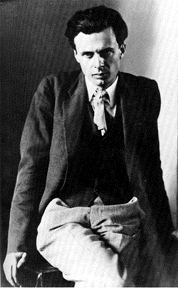If Aldous Huxley were alive today, he’d say—or more likely, tweet—“I told you so.”
In a 1958 interview with television journalist Mike Wallace, Huxley, who had just finished a book of essays called Enemies of Freedom (later published as Brave New World Revisited), warned that humans “mustn’t be caught by surprise by our advancing technology.” While Huxley would likely submit that this has happened countless times in the past 55 years, he’d now have more evidence to back up his claim, and, perhaps, more reason to worry.
Last week, a report by the NPD Group, a multi-national market research company, revealed that American homes contain 425 million Internet-connected devices. Computers remain the most popular, making up approximately 43 percent of the total, but portable devices such as smartphones and tablets together run a close second at 39 percent. (HDTVs, streaming media, Blu-ray, and video game systems comprise the rest.) That means gadgets outnumber people in the United States—population about 315 million—by more than 100 million, or nearly 25 percent.*
In the context of our rapidly developing technology, as well as our increasing reliance on it, this statistic hardly seems surprising. Televisions have outnumbered people in the United States since 2006, when the average number of televisions in an American home rose to three. But computers, smartphones, and tablets differ from old-school TV in two key respects. TV is a unidirectional medium—it funnels information to the viewer, rather than harvesting (and then surreptitiously disseminating or selling) it. While Huxley would likely see merit in some bi-directional aspects of being connected (tweeting from inside the Arab Spring, for example), he would also likely label data collection by advertisers and corporations a perfect example of “over-organization”—technology-related mechanisms that facilitate “more people living their lives out as subordinates in these hierarchical systems controlled by either the bureaucracies of big businesses or the bureaucracies of big government.”
Secondly, while plenty of people glue themselves to the boob tube, and many record more shows than exist hours in the day to watch, most of us do turn off and/or leave our televisions. However, more and more of don’t abandon our internet-connected devices, even to go to the bathroom.
The NPD study suggests that we’re tethered to our devices—we don’t or won’t disconnect. People want to touch them, hold them, keep them close, lest a disconnect open up like a lethal gulf. It is only a matter of time before our devices are implanted directly into us—indeed, researchers are already working on it. We’ll never be disconnected, which is exactly the thought that would terrify Huxley—and prove him right.
In his interview with Wallace, Huxley criticized the mechanisms that “make man love his slavery.” While he was referring specifically to the propaganda of dictatorial regimes, Huxley would likely also apply this concern to social media and the other cyber connections we’re loathe to abandon for even a second. Like the society in Brave New World, we dive headfirst into media, even if it’s addictive, controlling, and heavily monitored and regulated. We don’t come up for air.
Technology’s inventors, retailers, and devotees won’t be surprised by the NPD statistics and likely regard them as both desirable and inevitable. But the average person, I would wager, was caught off-guard by technology’s transition to ubiquity. What would Huxley do now? He would urge us to keep stay wary of our devices and their purveyors, lest we become shackled by them—a fate, he would argue, that could still take us by surprise.
Correction, Jan. 10, 2013: This article originally and incorrectly stated that Internet-connected devices in the United States outnumber Americans by 1 million. They outnumber Americans by 100 million.
